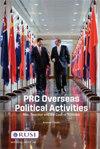3管理邻里保安
Q4 Social Sciences
引用次数: 0
摘要
不安全是摩加迪沙最大的平和因素。2016年11月26日星期六,Waberi区一个繁忙的菜市场对警察检查站发动汽车炸弹袭击,造成至少11人死亡,更多人受伤。努恩声称对此负责,但大多数人认为青年党是此次袭击的幕后黑手,袭击发生在总统访问附近一所大学时。两周后的2016年12月11日星期日,一名炸弹袭击者驾驶一辆装满炸药的小巴进入摩加迪沙土耳其经营的海港入口处的税务局。爆炸发生在一个停车场的摊位上,那里挤满了买早餐的白班工人。在这次事件中,青年党声称对杀害30名警察负责,但大多数人都同意,大多数死伤者是平民和港口雇员。整个城市都能听到爆炸声,现场照片很快在社交媒体上流传开来。从12月的袭击到2月的总统选举之间的几周里,发生了多起袭击事件,涉及车辆炸弹、简易爆炸装置、手榴弹和定点暗杀,摧毁了建筑物,造成政府代表和公民伤亡。选举是在亚丁·阿德国际机场的安全地带举行的,但那些没有国际保护的人成为了枪手的目标,其中包括索马里高级安全官员、税务人员等政府代表,以及长老、商人和非政府组织活动人士等权威人士。本文章由计算机程序翻译,如有差异,请以英文原文为准。
III. Managing Neighbourhood Security
Insecurity is Mogadishu’s great leveller. On Saturday 26 November 2016, at least eleven people were killed and many more injured in a car bomb attack on a police checkpoint by a busy vegetable market in Waberi district. Noone claimed responsibility, but most people thought that Al-Shabaab was behind the attack, which took place when the president was visiting a nearby university. Two weeks later, on Sunday 11 December 2016, a bomber drove a minibus packed with explosives into a tax office at the entrance to Mogadishu’s Turkish-run seaport. The blast went off among stalls in a lay-by crowded with day-shift workers buying breakfast. On this occasion Al-Shabaab claimed responsibility for killing 30 police officers, but most people agree that the majority of those killed and wounded were civilians and port employees. The blast could be heard across the city and pictures of the scene soon circulated on social media. The weeks between December’s attack and February’s presidential elections saw multiple assaults involving vehicle bombs, IEDs, grenades and targeted assassinations, which destroyed buildings and killed or injured government representatives and citizens. The elections were held in the safety of Aden Adde International Airport, but those without international protection were targeted by gunmen, including senior Somali security officers, government representatives such as tax collectors, and authority figures including elders, businessmen and NGO activists.
求助全文
通过发布文献求助,成功后即可免费获取论文全文。
去求助
来源期刊

Whitehall Papers
Social Sciences-Archeology
自引率
0.00%
发文量
12
期刊介绍:
The Whitehall Paper series provides in-depth studies of specific developments, issues or themes in the field of national and international defence and security. Published three times a year, Whitehall Papers reflect the highest standards of original research and analysis, and are invaluable background material for policy-makers and specialists alike.
 求助内容:
求助内容: 应助结果提醒方式:
应助结果提醒方式:


